
6 Benefits of Visualization for Swimmers
Wondering what visualization can do for your swimming? Here are some evidence-based benefits of visualization for swimmers for more confidence, less choking, and even better technique.
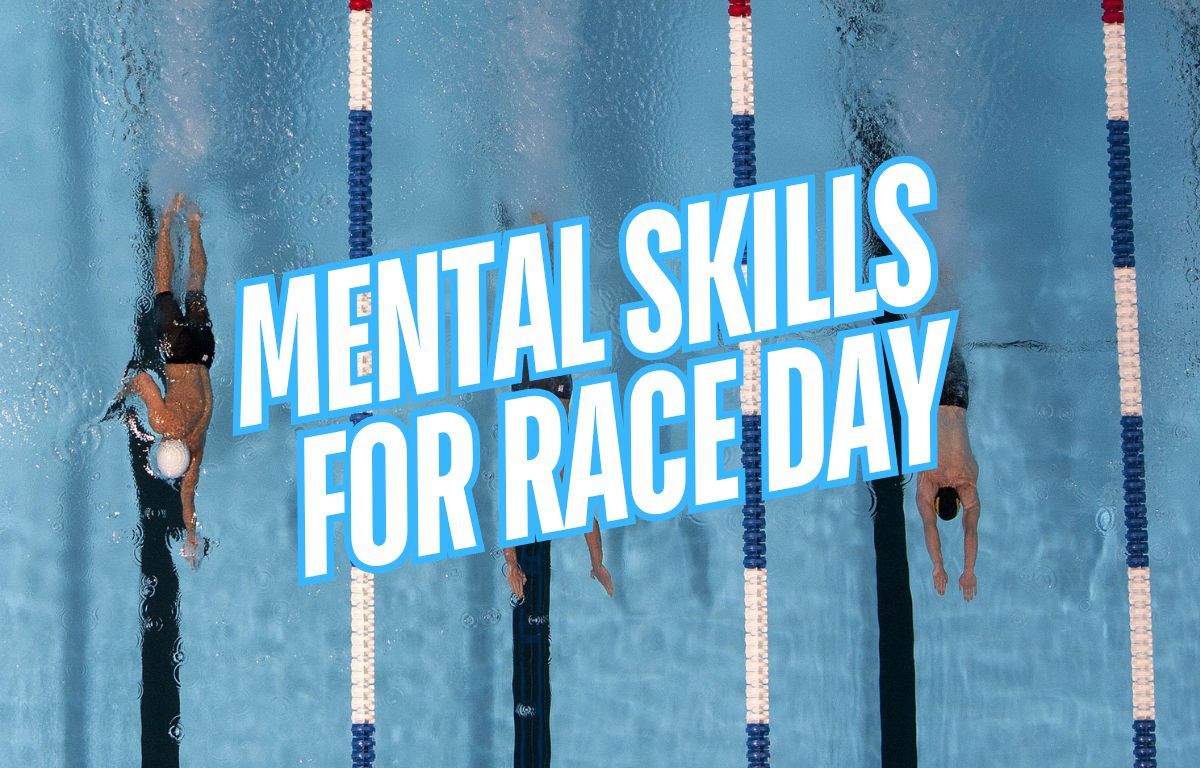
The right mental skills can help you unlock faster swimming on race day. Here is a look at the right skills to use for competition.
Swimming fast on race day isn’t just about hitting lots of PRs in training and swimming with killer technique…
It’s also winning the mental game.
We all know (or have been) the swimmer who works hard in training but cannot put it together in competition.
Overcoming nerves before a big race, struggling to stick to a race plan, or avoiding “choking” means having the right mindset and mental skills for success.
In this guide, we’ll look at the most important mental skills for swimmers to perform on race day.
Let’s dive in.
The essential skills for helping swimmers perform on race day include:
Next, we will look at each mental skill in more depth and offer some actionable tips to put them into your racing preparation plan.
No discussion on mental skills would be complete without talking about goal setting!
After all, the meters and yards that we’ve chalked up over the course of long weeks of training are in service of a clear, specific goal in competition.
Winning a medal, getting that cut, breaking a record.
Goals for competition give us clarity of purpose in training, keep us motivated, but also sharpen effort and focus on race day.
Write out goals that are specific to you, controllable, and that are clear.
Not only will this help you get fired up for race day but will also provide clear benchmarks for success and future training.
Pre-race nerves are one of the most infuriating aspects of race day success.
The sometimes-mysterious relationship we have with the physical symptoms of nerves and anxiety before competing can make or break our performance.
Having a healthy understanding of how pre-race nerves are fundamentally a form of energy can help us leverage the increased physical sensitivity towards faster swimming.
A study with students about to perform a tough mathematics exam found that simply rephrasing the nerves as excitement, instead of anxiety, significantly improved test scores.
Swimmers with an unhealthy relationship with pre-race nerves typically try to suppress what they are feeling, which doesn’t work and highlights a lack of control over the nerves.
End result?
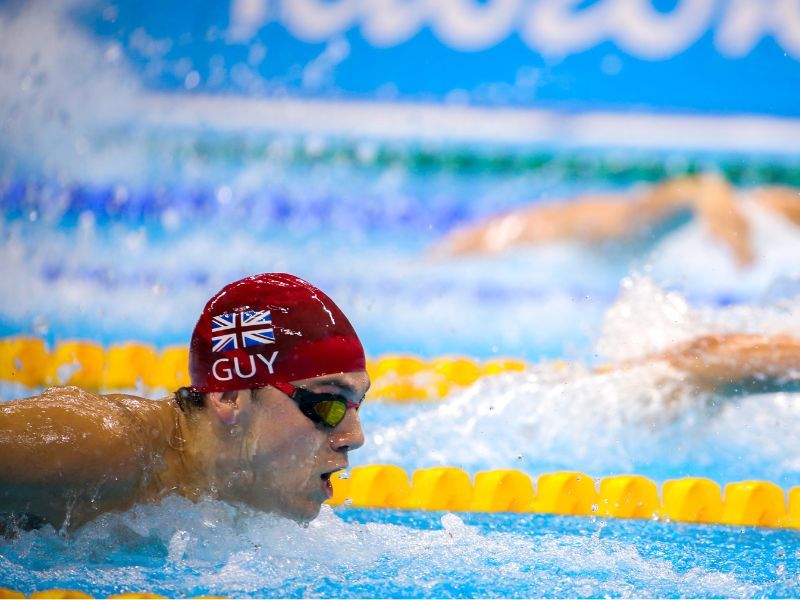
You feel less and less in control.
Working with pre-race nerves can feel counter-intuitive, especially for swimmers who are used to being in control of emotions and sensations from their body.
Forget squashing the nerves.
Instead, reframe them as excitement and use them as excitement.
Self-talk is the inner dialogue swimmers have with themselves in the water, consisting of thoughts, beliefs, and attitudes.
Self-talk comes in a few flavors, including motivational and instructional, with the most potent being negative self-talk (e.g. “There’s no way I can swim fast under these circumstances”).
There is a lot of research with athletes showing the effectiveness of targeted self-talk in improving endurance and power.
Self-talk is one of those mental skills that swimmers tend to leave to the whims of how they feel in the water that day.
Which is a huge, missed opportunity. Self-talk should be assigned, personal, and relevant to your goals on race day.
Be intentional about the language you use with yourself in training, and most especially, in competition.
Mental imagery, also known as visualization, is a powerful mental skill for swimmers that can reduce anxiety, groove an optimal performance, and give you lots of opportunities to rehearse excellence.
Mental imagery is the practice of closing your eyes and swimming through an ideal performance.
It’s so effective, in fact, that when done properly, mentally rehearsing a race yields many of the same physical symptoms of the race itself, including elevated heart rate, sweaty palms, and nerves.
Countless Olympians and champion swimmers have used visualization for competitive success over the years.
Michael Phelps was renown for “putting the tape in” each evening before he went to bed, imaging himself swimming with power and grace to Olympic gold.
Adam Peaty used his to train his body to feel like “he’d swum that race a thousand times” when he won gold at the Olympics.
Olympic gold medalists Cody Miller, Missy Franklin, Katie Ledecky, Kieren Perkins, Mark Tewksbury and countless others have similarly used mental imagery for competitive success.
The best ways to use mental imagery for competition include:
Problems, like busy warm-up pools, leaky swim goggles, or a poor start happen to the best of us. Rehearsing your ability to overcome these challenges on race day steel you.
Don’t just rehearse the race of your dreams, but also adversity and your positive reaction to whatever comes your way.
Pre-race nerves often knock off our game because we aren’t used to them.
Mental rehearsals offer an opportunity to “put in the reps” feeling the same feelings of nerves, including butterflies, sweaty palms, elevated heart rate, to make pre-race nerves more normal when they happen for real.
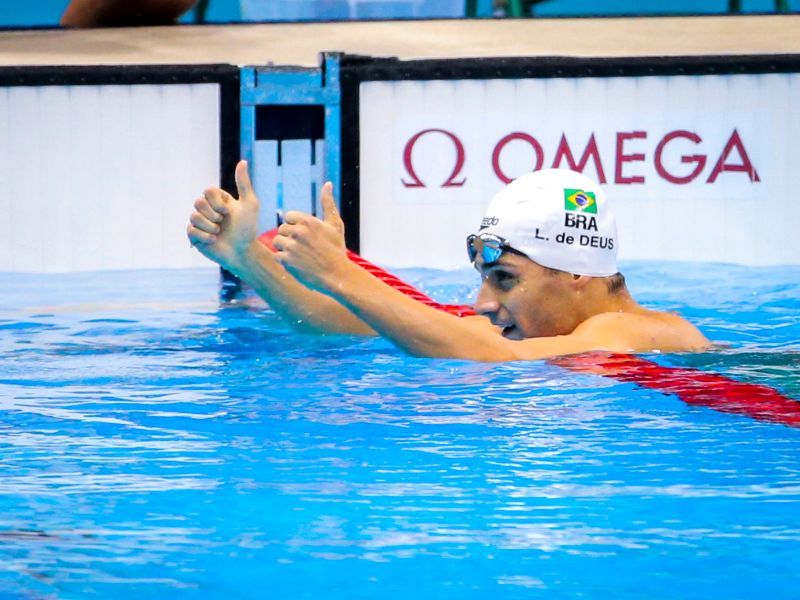
Mental imagery has been shown to be close to the real thing. By mentally rehearsing your ideal race, including a powerful start, crisp turn, excellent technique, and a head-down finish, you build muscle memory so that you can do it without overthinking under pressure.
Adding mental rehearsals to your mental skills toolkit helps you build confidence, prepare to compete under pressure, and stay resilient when things don’t go your way.
The process of swimming fast is deceptively simple: get from one end of the pool to the other as fast as possible.
That’s it, really.
Swim from A to B.
But where swimmers often trip up is overthinking this process when competing.
By micromanaging every aspect of performance and overthinking everything, you actually end up swimming slower under pressure.
Performance cues are a mental skill that allow you to exert maximum effort without overthinking the mechanics of your performance.
For example, some performance cues for race-day excellence would include:
Performance cues are at their most effective when they are somewhat vague, don’t center around technical or instructional cues, and can be used regardless of your place in the pool.
They are also an awesome tool to keep you focused on your race instead of getting swept away by what swimmers in the next lane are doing.
Routines are an anchor during uncertainty and moments of pressure.
Routines offer a refuge in tempestuous waters, allowing you to stay dialed in on your preparation instead of getting pulled by the current of external factors you don’t control.
Here are some example routines swimmers can deploy for competition:
One of the key things I look for when working with swimmers is asking them about their routines.
Swimmers who place an emphasis on controllable routines are better positioned to swim fast and consistently when things get tough.
Alrighty, the race, the session, the swim meet is all wrapped up. Time to stuff that tech suit and racing goggles into your swim bag and hit the local pasta spot to replenish, right?
For sure.
But along the way, don’t forget to reflect and analyze your performances.
Reflection is a hugely powerful, and criminally under-used, mental skill for swimmers. Taking time to reflect on how you swam, for better or worse, can create a momentum-building runway for what’s next.
Effective reflection is:
Reflection naturally shines a light on what you did well and where you came up short.
But it is important to avoid making emotional judgments (“I sucked!”) in favor of more analytical appraisals (“I didn’t maintain pace on the back-half of the race”). Constructive reflection gives you actionable data to work with.
Elite-minded swimmers take accountability of their performances, and proper reflection is part of this process.
Instead of blaming competitors or other external factors, reflection points you towards things you can control, turbocharging growth.
Reflecting on your swims is a feedback mechanism for what is next.
Good swim or bad swim, reflection opens the door to tomorrow’s improvement.
Adding regular reflection, either with controlled post-swim sit-downs with your swim coach, in the pages of your logbook, or both, fosters a mindset that is geared towards continuous improvement.
Unlocking that *perfect* performance on race day can feel infuriating at times. Especially for swimmers who work really hard in practice but struggle to open up that next level of performance.
Mental skills, like physical preparation, should be implemented into training in the months and weeks before competition.
Start implementing the skills above in your preparation, steel yourself for success, and unleash faster times on race day.
Happy swimming!
It doesn’t mean you don’t care; quite the opposite, it means you care enough to value and enjoy every moment of this amazing journey.
Swimmers frustrated with underwhelming performances on race day and want to conquer their mindset will love Conquer the Pool: The Swimmer’s Ultimate Guide to a High-Performance Mindset.
Written with the feedback of 200+ Olympians, NCAA champions, and head coaches, the book is the complete blueprint for an unbeatable mindset in practice and training.
From learning how to build a killer pre-race routine to everything you’ll ever need to master pre-race nerves, Conquer the Pool gives swimmers the tools to swim with total confidence on race day.
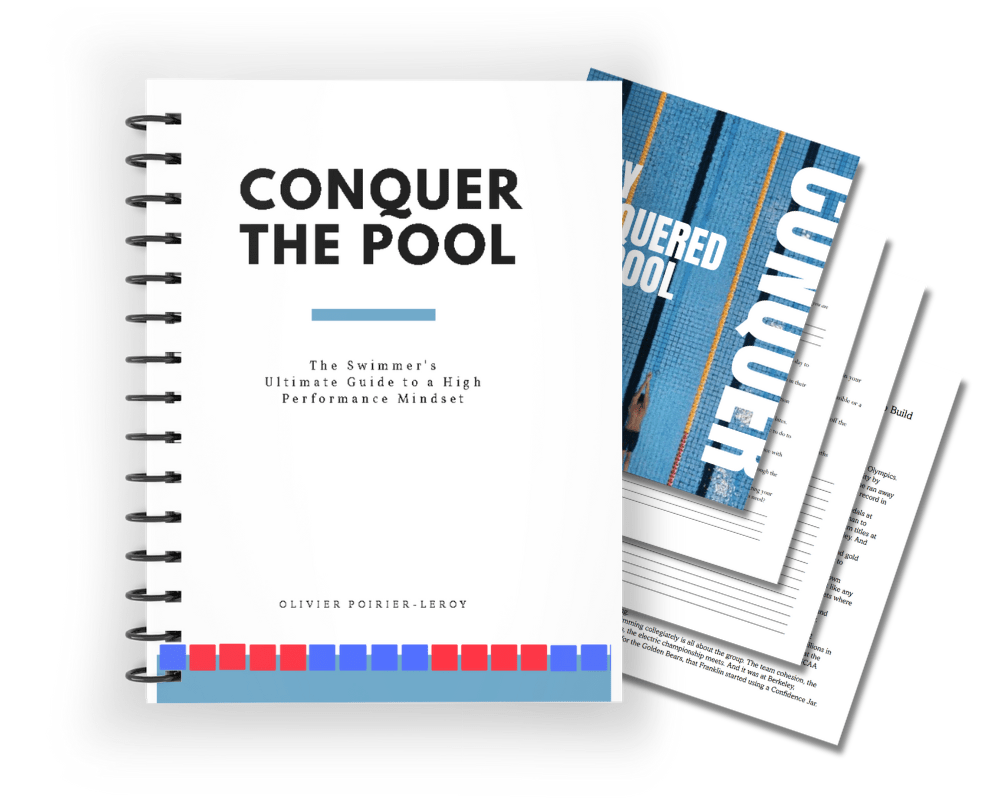
How Swimmers Can Develop a “Victor” Mindset (and Ditch the Victim Mindset). Swimming fast in training and competition depends on taking ownership of your performance. Here’s how to get started with taking full responsibility for your swimming.
6 Tips for Days When You Really, Really Don’t Feel Like Going to Swim Practice. Going to swim practice feeling like a struggle? Here are some proven strategies and tips to conquer today’s swim practice, even though you might not be feeling it.

Olivier Poirier-Leroy Olivier Poirier-Leroy is the founder of YourSwimLog.com. He is an author, former national level swimmer, two-time Olympic Trials qualifier, and swim coach.
✅ Free shipping on Orders over $49
✅ Price Match Guarantee
✅ Best selection of gear for training and competition
✅ Fast and Easy Returns

“This is the best book I have ever seen concerning mental training.” — Ray Benecki, Head Coach, The FISH Swim Team


Wondering what visualization can do for your swimming? Here are some evidence-based benefits of visualization for swimmers for more confidence, less choking, and even better technique.

Ready to uncork some best times at your next swim meet? Here’s what you need to know to prepare for a swim meet.
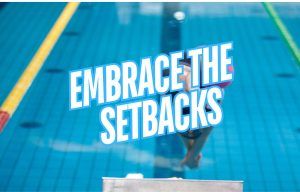
Frustrated with setbacks in the pool? Here are some tips for improving your ability to embrace setbacks and swim faster.
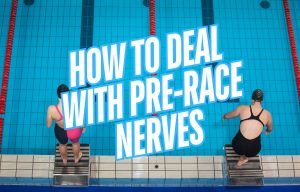
Struggling to swim fast under pressure? Here are some tips for how to manage pre-race nerves on race day.
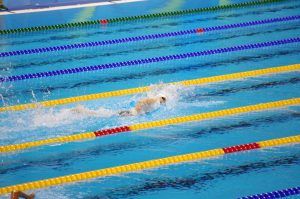
Swimmers often find themselves stuck with doubt when it comes to doing tough things in the water. Here’s a simple question to ask when you find doubt and uncertainty stopping you from excellence.
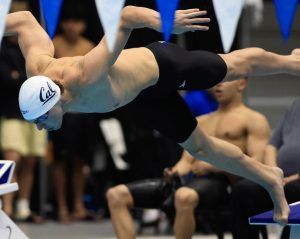
Looking to take your mindset and swimming to the next level? Here are five things you can learn from Jack Alexy, one of the fastest freestylers on the planet.
SITE
SHOP
GUIDES

LANE 6 PUBLISHING LLC © 2012-2025
Join 33,000+ swimmers and swim coaches learning what it takes to swim faster.
Technique tips, training research, mental training skills, and lessons and advice from the best swimmers and coaches on the planet.
No Spam, Ever. Unsubscribe anytime.
